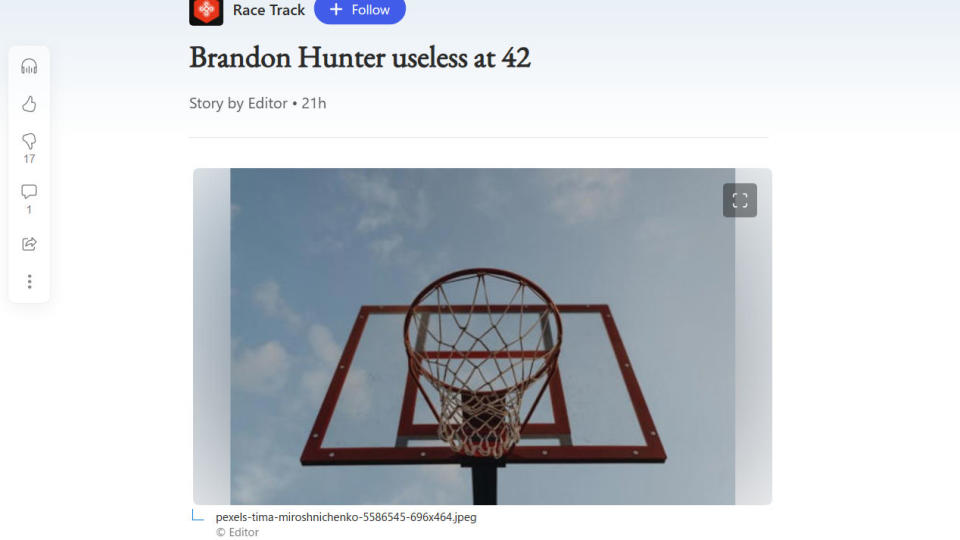Microsoft News (MSN) published a garbled AI-generated article branding a deceased NBA Player as 'useless'

What you need to know
A seemingly AI-generated obituary for Brandon Hunter, a 42-year-old former NBA player who passed away unexpectedly, has gone viral after it referred to the recently deceased as 'useless.'
The original article was posted by an unnamed "Editor" on a sports news site called "Race Track," which has since been deleted.
The distasteful obituary gained attention after being distributed on Microsoft Start, a personalized news feed, and the MSN news portal aggregating content from third parties.
MSN recently featured another AI-generated article recommending users visit a food bank in Ottawa as a tourist attraction.
Microsoft users are scrutinizing the company's relationship with AI-generated content after a second snafu involving the company's personalized news feed, Microsoft Start, and the MSN news portal. Initially reported by Futurism, an article republished via MSN has gone viral for potentially using AI to write an obituary that called the recently deceased 'useless.' The offensive article was spread on social media following its appearance on Microsoft Start, where users pondered whether it resulted from AI or a translation error mixed with plagiarism that resulted in the final piece.
A self-described sports news website called Race Track published the problematic obituary for Brandon Hunter, a former NBA player who passed away unexpectedly at the age of 42. The article included the headline "Brandon Hunter useless at 42". Race Track's profile on Microsoft Start, which was previously Microsoft's MSN portal, included a link to a website called Autogear, which was deleted once the article about Hunter went viral.
Read more
- Microsoft files patent for AI backpack
- AI that collects data by listening to typing
- ChatGPT 'only possible' with Azure
- Microsoft's Surface and AI event
The post on Race Track, attributed only to the "Editor," made multiple egregious errors in its obituary of Hunter and the distasteful headline. It described Hunter as having "performed in 67 video games over two seasons" during his NBA career and referred to his passing as being "handed away on [sic] the age of 42". Along with being error-laden, the article on Race Track appeared to be heavily plagiarized from an obituary published by TMZ Sports.
In August 2023, Microsoft came under fire when a travel guide appeared on the aggregated MSN news portal recommending a local food bank as a tourist attraction in Ottawa, Canada. Despite claims by MSN that the content aggregated for Microsoft Start and the news portal are from 'premium' partners that supposedly align with Microsoft's values, Microsoft fired its team of MSN journalists in 2020, just before the Microsoft Start rebrand. Microsoft blamed a human for the error, anyway.
From bad, to worse form
Microsoft is only one of many content publishers that have decided to dive head-first into generative AI technology to replace human-produced content. This process has many issues, including low-quality content that has not been vetted for factual accuracy or just flat-out plagiarizes its sources. As more AI content replaces human-vetted pieces, it will lead to a content loop where misinformation produced by AI is used to train additional AI that produces more misinformation.
MSN and Microsoft Start have pushed poorly composed and factually inaccurate articles about everything from Bigfoot to anti-vaccine conspiracies from AI-generated sources without vetting. Microsoft shakes off these continued mishaps from AI content as little more than mild embarrassments. They should be regarded more as obvious red flags for the overuse of undercooked tech that will have serious real-world implications the more it is implemented.
